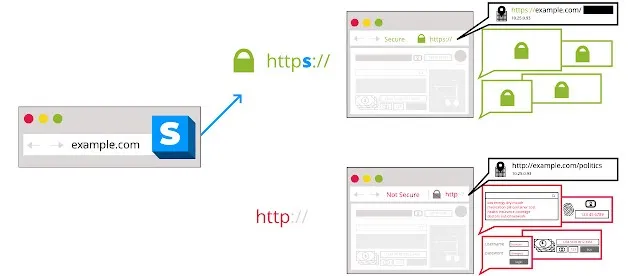
Chrome Is Becoming Faster: New Update from Google

Have you ever noticed the increase in Google Chrome browser speed that occurs with the release of updates? It seems to be always fast enough. However, Google believes that users may be unhappy with the page loading speed. The company has promised to increase its performance in the next browser update numbered 90. Let’s find out what to expect.
What’s New in Chrome 90
Chrome 90 for desktop and mobile will be released before the end of spring. In this update, Google will change the way web pages are loaded. After the update, the HTTPS protocol will become the main one for the browser.

It appeared many years ago, but until now Chrome has used its unsecured counterpart by default, accessing it first, and only then loading HTTPS if it receives information about its availability from the site. According to the new algorithm, the browser will try to download the protected version, and if it is not there, the unprotected one.
Google Chrome Security

Google made this decision because the vast majority of sites on the Internet use encryption. Therefore, Chrome is simply wasting extra time to download the insecure version of the site, and then switch to the secure one.
Despite the fact that this does not take much time, there was still a delay in transitions between HTTP and HTTPS-adapted versions of web resources. As a result, sites loaded more slowly than they could, so Google decided to clear up this misunderstanding.
HTTPS is a secure version of the HTTP protocol that uses encryption to enhance the security of user interactions with a website. Thus, it is possible to exclude the interception of data by third parties and to hide them even from the owner of the resource.
It's hard to say how much Chrome's performance will change and whether users will notice it just by not using the default HTTP protocol.
How to Overclock Google Chrome

Recently a number of tricks have appeared in the proprietary browser of the search giant that help to increase the speed of loading web pages. Here they are:
- Back and forward cache - a mechanism that allows you to instantly load a page when returning, pulling it out of the cache;
- JavaScript timer - it counts the time from the last access to the tab and freezes it if more than a minute has passed;
- Freeze-Dried Tabs - a tool that kind of takes a screenshot and loads it first if the page is heavy;
- IsolatedSplits - a mechanism that supports the operation of only those web pages that are in the user's field of view, which increases the loading speed by 7%.
When Will Chrome 90 See the Light of a Day?
Google announced that they decided to release new versions of Chrome every 4 weeks. But this rule will only take effect in the summer.
Chrome 90 will not be released in early April, as many thought, but closer to the beginning of May.
During this time, Google plans to complete debugging and testing of the new version of the browser. They are going to fix critical vulnerabilities and introduce the innovations that have been tested for a long time.
We’ll keep you up to date.





